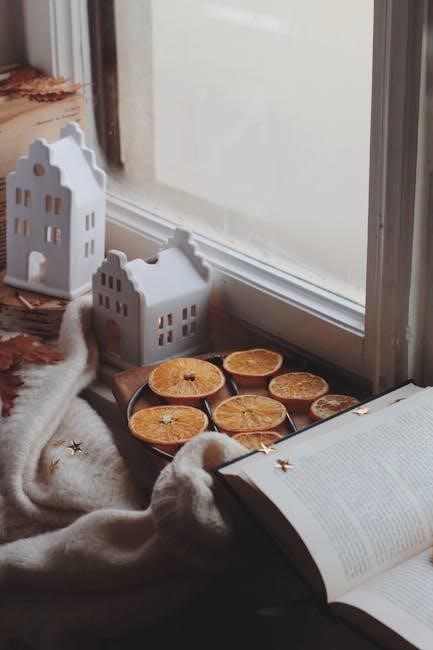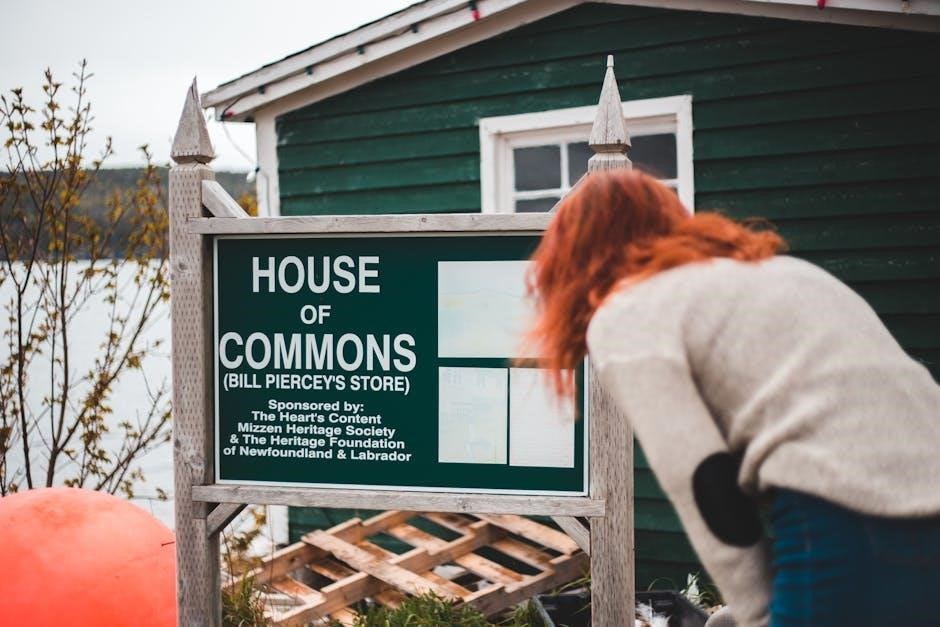First published in 1839‚ Edgar Allan Poe’s “The Fall of the House of Usher” is a Gothic horror tale exploring madness‚ isolation‚ and supernatural elements.

1.1 Historical Context and Publication
-
Published in September 1839 in Burton’s Gentleman’s Magazine‚ “The Fall of the House of Usher” marked a significant milestone in Edgar Allan Poe’s career. It was later included in his 1840 and 1845 story collections‚ solidifying its place in Gothic literature. The tale’s atmospheric horror and psychological depth resonated with readers‚ showcasing Poe’s mastery of the genre.
1.2 Significance in Gothic Literature
Edgar Allan Poe’s “The Fall of the House of Usher” stands as a cornerstone of Gothic literature‚ blending psychological terror with supernatural elements. Its exploration of madness‚ decay‚ and family curses has influenced countless works in the genre; The story’s atmospheric setting and themes of isolation and moral disintegration captivate readers‚ making it a timeless example of Gothic horror. Its impact on literature is undeniable‚ shaping the way authors craft eerie narratives and complex‚ tormented characters.
Plot Summary
The narrator visits his childhood friend Roderick Usher at his decaying mansion. Roderick‚ ill and convinced the house is alive‚ believes it causes his sickness. Madeline‚ his sister‚ dies‚ and they entomb her. Strange noises and the house’s collapse follow‚ mirroring the family’s doomed fate.
2.1 The Narrator’s Arrival at the House of Usher
The narrator arrives at the House of Usher on a dreary day‚ drawn by a letter from his childhood friend Roderick. As he approaches‚ he feels an eerie‚ oppressive atmosphere. The house appears ancient and crumbling‚ with overgrown gardens and a tarn reflecting its decaying image. Upon entering‚ he is struck by the somber decor and Roderick’s frail‚ anxious state. Roderick attributes his illness to the house’s dark influence‚ setting the tone for the unfolding horror.
2.2 Roderick Usher’s Illness and Madness
Roderick Usher suffers from a mysterious physical and psychological illness‚ marked by hypersensitivity‚ anxiety‚ and a growing sense of dread. He believes the house itself exerts a malevolent influence‚ contributing to his decline. His condition worsens as the story progresses‚ leading to erratic behavior and a descent into madness. Roderick’s fear of impending doom and his belief in supernatural forces intensify‚ culminating in a tragic unraveling that mirrors the crumbling house‚ symbolizing his fractured psyche and inevitable collapse.
2.3 The Mysterious Death of Madeline Usher
Madeline Usher‚ Roderick’s twin sister‚ dies under unclear circumstances‚ further heightening the eerie atmosphere. Roderick entombs her in the house’s dungeon‚ believing she has succumbed to a terminal illness. However‚ strange noises and movements suggest she may not be truly dead. Her death accelerates Roderick’s mental deterioration‚ and her eventual reappearance during a storm adds to the supernatural horror. Madeline’s fate remains shrouded in mystery‚ contributing to the unfolding tragedy and the house’s ultimate collapse‚ symbolizing the inescapable darkness that consumes the Usher family.

Character Analysis
The story revolves around Roderick Usher‚ a mentally unstable aristocrat‚ his sister Madeline‚ and the unnamed narrator‚ each embodying psychological complexity and contributing to the eerie atmosphere.
3.1 Roderick Usher: The Tormented Aristocrat
Roderick Usher is the enigmatic master of the crumbling House of Usher‚ suffering from a mysterious illness that blurs the lines between physical and psychological decay. His fragile mental state and obsession with the supernatural create an atmosphere of dread‚ while his artistic sensibilities hint at a deeper inner turmoil. Roderick’s fear of madness and his belief in the sentient nature of his house underscore his tragic descent into chaos‚ making him one of Poe’s most complex characters.
3.2 Madeline Usher: The Enigmatic Sibling
Madeline Usher is Roderick’s twin sister‚ whose mysterious illness and ethereal presence add to the eerie atmosphere of the story. Her suffering is both physical and emotional‚ and her eventual death deepens the sense of tragedy. Madeline’s character serves as a symbol of the fragile and enigmatic nature of life‚ while her relationship with Roderick highlights themes of family bonds and shared destiny. Her presence‚ even in death‚ lingers hauntingly‚ contributing to the unraveling of the Usher family’s dark fate.
3.3 The Unnamed Narrator: A Witness to Horror
The unnamed narrator serves as the story’s moral and rational anchor‚ providing an outsider’s perspective on the eerie events unfolding at the House of Usher. His visit‚ prompted by Roderick’s letter‚ sets the tale in motion. The narrator’s growing fear and helplessness mirror the reader’s experience‚ as he struggles to comprehend the supernatural and psychological chaos surrounding him. His inability to save Roderick or Madeline underscores the inevitability of the Usher family’s tragic demise‚ leaving him a haunted witness to their downfall.

Themes in “The Fall of the House of Usher”
Exploring madness‚ the supernatural‚ and isolation‚ the story delves into the decay of aristocracy‚ family curses‚ and the psychological collapse of its characters.
4.1 Madness and the Supernatural
The story masterfully intertwines madness and the supernatural‚ creating a chilling atmosphere. Roderick Usher’s psychological deterioration and belief in the house’s sentience highlight the blurred lines between reality and madness. The supernatural elements‚ such as the house’s eerie presence and Madeline’s mysterious death‚ amplify the sense of dread. These themes underscore the inevitability of the Usher family’s downfall‚ leaving readers questioning what is real and what is imagined. The interplay of these forces creates a haunting exploration of mental and cosmic instability.
4.2 Isolation and Loneliness
The story emphasizes the devastating effects of isolation and loneliness through the Usher family’s secluded existence. The house‚ located in a remote‚ gloomy area‚ symbolizes their disconnection from society. Roderick’s letter to the narrator highlights his desperate need for companionship‚ underscoring his emotional isolation. The crumbling house mirrors the family’s internal decay‚ while the dark‚ mysterious surroundings amplify their sense of being cut off from the world. This isolation intensifies their psychological struggles and contributes to the eerie‚ foreboding atmosphere of the tale.
4.3 Family and Inheritance
The Usher family’s dark legacy and cursed inheritance are central to the story. Their once-noble lineage is marked by decline‚ madness‚ and an unnatural bond between Roderick and Madeline. The house serves as a symbol of their decaying heritage‚ entombing generations of secrets and sorrow. This inherited curse manifests in their physical and mental deterioration‚ ultimately leading to the family’s collapse.
4.4 The Decay of Aristocracy
The story reflects the decline of the aristocratic class‚ with the Usher family embodying a fading legacy. Their once-grand house‚ now crumbling‚ symbolizes the rot of old-world values. The family’s isolation and refusal to adapt to changing times accelerate their downfall. Their noble lineage is tainted by madness and moral decay‚ suggesting that aristocracy‚ when disconnected from reality‚ inevitably collapses. Poe critiques the rigidity of outdated social hierarchies‚ highlighting how their refusal to evolve leads to their extinction.

Literary Devices and Symbolism
Poe masterfully employs symbolism‚ with the house mirroring the Usher family’s decay. The eerie setting and dark imagery create a haunting atmosphere‚ while madness and isolation are central themes.
5.1 The House of Usher as a Symbol
The House of Usher serves as a potent symbol of the crumbling Usher family’s legacy and psyche. Its decrepit state mirrors Roderick’s mental deterioration and the family’s cursed heritage. The house’s physical decay—cracked walls‚ overgrown gardens—reflects the moral and psychological rot within. Poe uses the house to symbolize the inescapable fate and intertwined destinies of its inhabitants‚ creating a haunting metaphor for the transience of aristocracy and the destructive power of familial secrets.

5.2 The Role of Setting and Atmosphere
The setting of “The Fall of the House of Usher” is pivotal in creating a foreboding and eerie atmosphere. The isolated‚ decaying mansion‚ surrounded by a dismal landscape‚ evokes a sense of dread. Poe’s vivid descriptions of the crumbling house and its somber environment mirror the characters’ psychological states. The dark‚ gothic architecture and the eerie tarn amplify the supernatural undertones‚ immersing the reader in a world of mystery and horror. This atmospheric setting enhances the story’s tension and themes of madness and decay. The time of day‚ often described as dusk‚ further heightens the sense of impending doom.
5.3 The Use of Colors and Imagery
Poe’s masterful use of colors and imagery in “The Fall of the House of Usher” heightens the eerie and foreboding atmosphere. The predominantly dark‚ gray‚ and black hues of the house and its surroundings evoke a sense of decay and death. The tarn‚ with its murky waters‚ mirrors the house’s unsettling appearance‚ amplifying the supernatural undertones. Imagery of crumbling stones‚ flickering shadows‚ and dimly lit interiors contributes to the overall sense of dread. These visual elements immerse readers in the haunting world‚ reinforcing themes of madness‚ isolation‚ and the supernatural. The vivid descriptions create a chilling backdrop for the unfolding horror.
Study Guide and Discussion Questions
This section provides a detailed summary‚ analysis of themes‚ symbols‚ and key quotes‚ along with discussion prompts to deepen understanding of the story’s complexity and meaning.
6.1 Key Quotes and Their Meanings
“During the whole of a dull‚ dark‚ and soundless day in the autumn of the year…” ⏤ Sets the eerie tone‚ emphasizing the atmosphere of dread and isolation.
“He admitted‚ however‚ that the sense of smell was much more acute in the sufferers of this nervous affection.” ⏤ Highlights Roderick’s heightened senses and growing madness.
“And now I have to tell you how I disappeared from the world.” ⏤ Reflects Roderick’s isolation and the inescapable fate of the Usher family.
These quotes reveal themes of madness‚ decay‚ and supernatural elements central to the story.
6.2 Essay Prompts for Analysis
Analyze the role of madness in the story‚ focusing on Roderick Usher’s descent into insanity and its impact on the narrative.
Explore the theme of isolation: How does the setting of the House of Usher contribute to the characters’ psychological states?
Discuss the significance of family and inheritance in the story‚ particularly the cursed Usher lineage.
Examine the use of supernatural elements and their relation to the characters’ fears and realities.
Consider the narrator’s role as an observer: How does his perspective shape the reader’s understanding of events?
Write a comparative analysis of the house as a character and its symbolic connection to the Usher family’s demise.
How does Poe’s use of imagery and atmosphere create tension and foreboding throughout the story?
6.3 Reading Schedule and Assignments

Day 1: Read the first half of the story‚ focusing on the narrator’s arrival and initial impressions of the House of Usher. Complete a reading journal entry on the eerie atmosphere.
Day 2: Finish the story‚ paying attention to Roderick’s illness and Madeline’s mysterious death. Write a reflection on the themes of madness and isolation.
Day 3: Review key quotes and analyze their significance. Participate in a class discussion on the symbolism of the house.
Day 4: Complete a written analysis of the narrator’s role and reliability. Prepare for a quiz on plot details and themes.
Day 5: Write a short essay comparing the house to the Usher family’s fate. Submit annotations on the story’s use of foreshadowing and imagery.
Published in 1839‚ “The Fall of the House of Usher” remains a masterpiece of Gothic literature‚ haunting readers with its exploration of madness‚ isolation‚ and supernatural decay.
7.1 The Enduring Legacy of the Story

Published in 1839‚ “The Fall of the House of Usher” remains a cornerstone of Gothic literature‚ influencing countless adaptations and inspiring modern retellings in film and television. Its exploration of madness‚ isolation‚ and supernatural themes continues to captivate audiences‚ solidifying its place in literary history. The story’s haunting atmosphere and psychological depth have made it a timeless classic‚ ensuring its relevance for generations of readers and scholars alike.
7.2 Final Thoughts on the Reading Experience
Reading “The Fall of the House of Usher” is an unforgettable journey into the heart of Gothic horror. The story masterfully evokes a sense of unease and dread‚ immersing readers in its eerie atmosphere. Poe’s exploration of madness‚ isolation‚ and the supernatural lingers long after the final page. The tale’s haunting beauty and psychological complexity leave readers both unsettled and reflective‚ making it a deeply rewarding and thought-provoking experience that resonates with audiences to this day.
